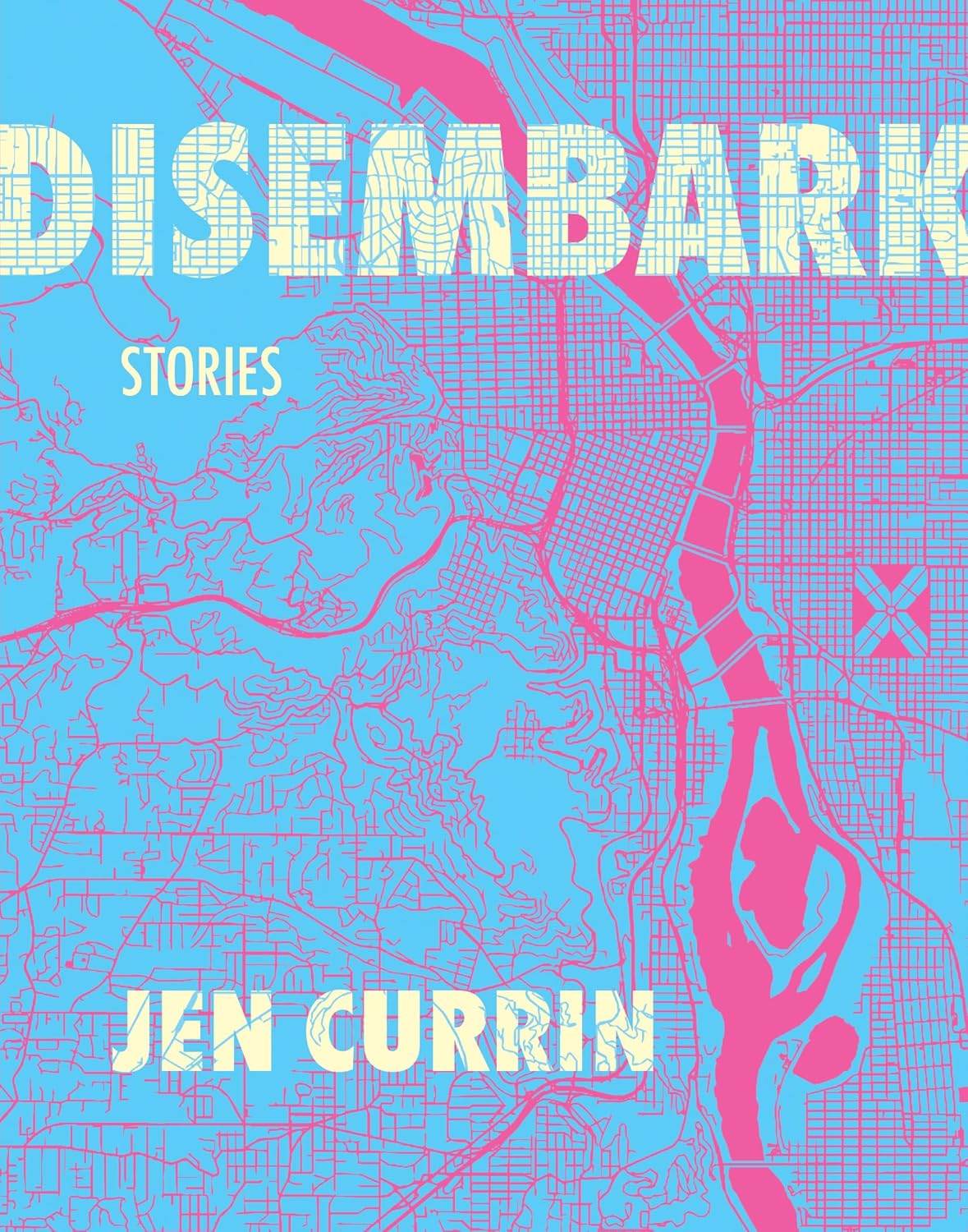Review of Disembark: Stories by Jen Currin

Disembark: Stories
Jen Currin
House of Anansi, 2024, 264 pages
$17.99
Reviewed by Pelaya Arapakis
Jen Currin’s Disembark is a vibrant short story collection offering readers glimpses into the lives of queer characters as they navigate periods of transition and change. Drawing on the narrative modes of realism and magical realism, Currin showcases the breadth and depth of queer relationships—from platonic intimacies to romantic intimacies and the emotional territories in between—exploring the nuances of queer love against the backdrop of urban life.
The collection opens with a story that traces entangled queer relationships, aptly titled “The Golden Triangle.” We encounter a constellation of characters who meet, love, fuck, date each other’s exes, negotiate non-monogamy, and like a tide, drift in and out of each other’s lives. However, the heart of the story revolves around the narrator’s friendship with their gregarious and flirty friend, Del, and the attendant experiences of love, loneliness, grief, and liminal spaces of intimacy. Over the course of the narrative, we learn that the protagonist yearns for a romantic relationship with Del as they grapple with an intense desire for their friend that they attempt to suppress: “Sometimes my mind tried to veer to Del, to the night we’d spent together, her soft skin, the way her tongue had felt in my mouth—but I quickly shut these thoughts out before they could go too far” (10-11). After all, “[They] were just friends, and it would stay that way” (9).
With prose that is effortless, considered, and evocative, Currin embodies the lives of each of their characters with grace and complexity. In “Joey, When She Knew Him,” Currin tenderly explores a different kind of entanglement—the friendships between lesbians and gay men. A profound sense of loss and sorrow suffuses the pages of this story as Currin captures the acute emotional pain of dissolving friendships. The narrator, Sid, recalls how her once-best-friend, Joey, “used to tell her all the time that he loved her” (40). However, the insecure and bedraggled Joey ultimately finds a husband and starts going by a new name: “Joey goes by Richard now” (30). A gulf between Sid and Joey slowly sets in, widening over time, and Sid mourns for the person she once knew.
One of the more fantastical of these stories is the surreal yet witty “Banshee,” which follows the story of a banshee who takes up residency in a lesbian couple’s home. In the story, the narrator navigates a rocky marriage while the imminent threat of climate catastrophe haunts her. The banshee lurks along the fringes of the narrative as Currin charts the changing circumstances that brought about the couple’s marital difficulties. The banshee loiters around the apartment, humming, rocking, moaning, listening to Drake, or playing guitar. It appears she has arrived to perform last rites for the biosphere: she wails, “a thousand gorse fires on the island” (51) and caws, “The winds. . . Close your eyes. The dust the dust the dust” (52). But does the banshee also portend the literal death of the narrator? Or her wife, Matilde? Does she represent the figurative death of their relationship? Or could the banshee signify the death of old ways of relating and the birth of the new? This story leaves us with much to consider.
Across twelve compelling stories, Currin presents us with snapshots into the multifaceted nature of queer relationships and love. The theme of change unites this collection, affording us small moments into the lives of each character as they prepare for new beginnings and journeys of transformation.
Pelaya Arapakis (she/her) is a Sinister Wisdom intern based in Naarm/Melbourne. She is also a musician, cultural worker, and freelance writer.
"Empowerment comes from ideas."
― Charlene Carruthers
"Your silence will not protect you."
— Tourmaline
"Gender is the poetry each of us makes out of the language we are taught."
— Leila Raven


